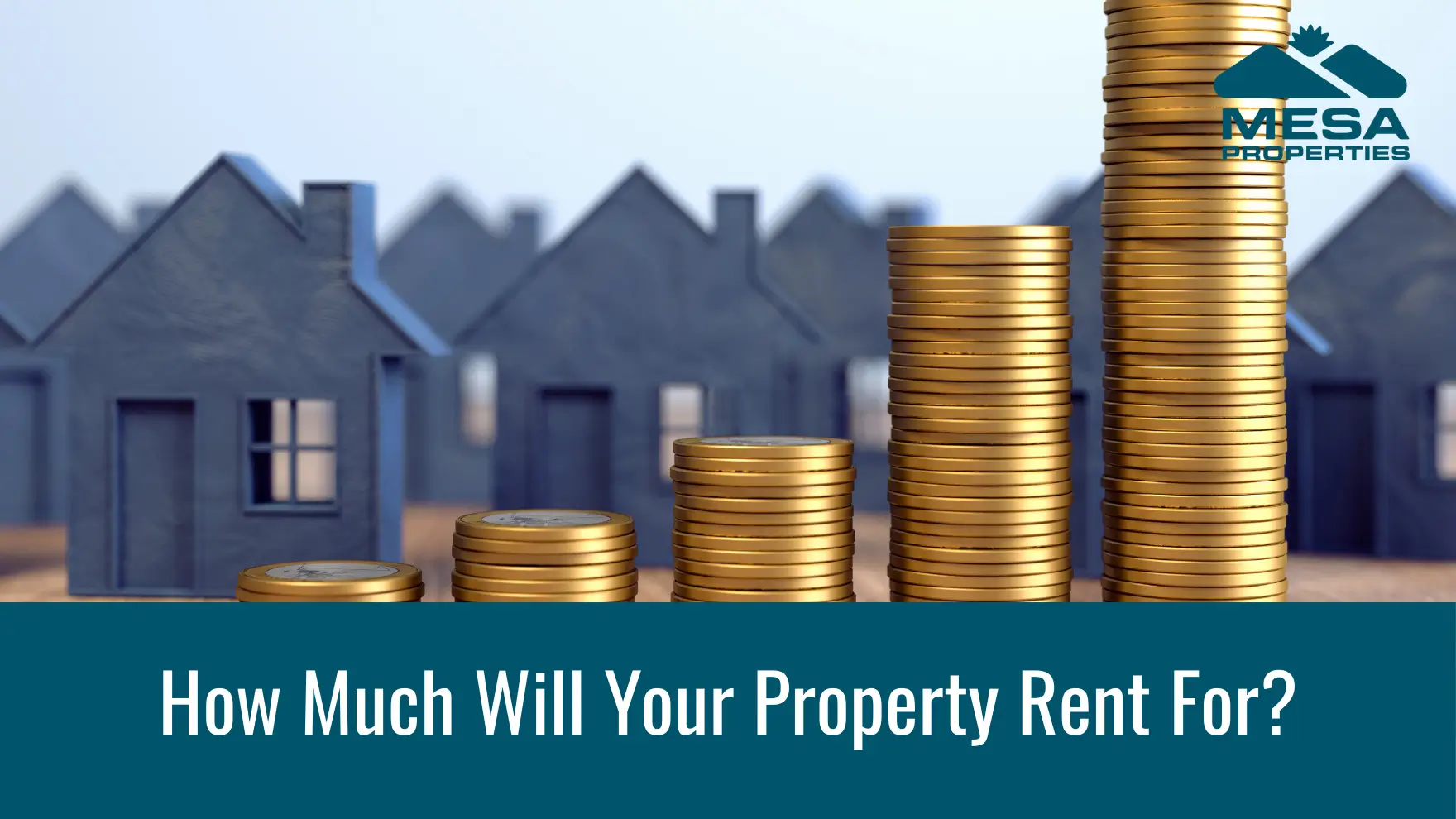One very important step in renting out a single family home is knowing what to set the asking rent for. Set it too high and your property will sit vacant for weeks. Too low and you won't be collecting as much income as you potentially could be.
So how do you make sure you ask the right amount?
You have a couple of options here, one that involves researching the rental value yourself and one that involves reaching out to a property management professional to help you out.
The "DIY" Option
There are numerous online services that use algorithms that can help you nail this important number. Some are paid and some are free, but all are generally checking the same data. They are looking at similar homes in the same area that have the same or close bedroom and bathroom count and square footage.
In fact, the most popular of these is Zillow's "Zestimate." If you look up your address on Zillow, it will have a sales estimate as well as a rental estimate. Sometimes these are pretty accurate, but sometimes they are way off. The same goes with any other online site that searches what it believes to be comparable properties in your area.
The accuracy of these is based on these sites having the correct data. For example, if you added on a bedroom but Zillow hasn't seen that update, it may be running your home against properties that aren't truly comparable. Same goes for if Zillow thinks you have more bedrooms or bathrooms or the square footage is off.
One thing that is very important that online algorithms aren't looking at is time on market. That means that your neighbor's house that has been on the market for 3 months because the rent is $500 more than it should be is going to raise the estimated rent that the algorithm thinks yours should be going for.
It's also a common thought that fancy upgrades like granite counter tops and stainless steel appliances will drastically raise the rent amount. While it's true that these features may make your home more appealing to potential tenants, it's often unreasonable to think that you can make the rent significantly higher because of them. While it's true that upgraded properties will rent faster and for slightly more than dated properties, going significantly above market will most likely make your property sit. Even fully furnished properties don't rent very fast if they are a couple hundred dollars above market.
When doing your own market research, make sure the data you are using is accurate and your expectations are realistic. Look at properties that rent quickly, i.e. under 30 days, and what they were priced at as well as their condition and features. If you find similar properties to yours that are renting quickly, then you've likely found a good comparable property to set the rent off of.
The "Ask A Professional" Option
Your second option when determining market rent is to ask a property management professional. Notice how we didn't say real estate agent. Many real estate agents will try and estimate rent but if they are mostly familiar with setting sales prices, they may not do it correctly and are more likely to overestimate the amount.
Property managers set rent amounts dozens of times a month. They are familiar with the market and will have detailed information on how long their homes in your specific area are taking to rent. They will also have a lot more data than you do by researching online because they have an entire portfolio of properties that are in your area and will know the condition, rent amount and time on market for each.
Many companies will provide a rental analysis to you for free in the hopes of winning your business and managing the property long term. In fact, if you would like us to provide you with a free rental analysis of your Inland Empire or High Desert home, just click here!
This is generally your best bet in determining accurate rent for your home, but you still need to be careful!
Property management companies know that you are likely talking to multiple different companies when making your decision on who to work with to rent out your home. They want your business, so they will often overestimate your rental amount. They may tell you your home will rent for a couple of hundred dollars over market so you will choose them to work with.
Be very wary of this! If one company is telling you a number that is significantly higher than other companies, there's probably something off. Don't be afraid to ask what comparable properties they used when determining rent amount. If they are overestimating your rent, they may not know what they are doing or are intentionally telling you more than they actually think it will rent for just to get you to sign a contract.
What if the property manager's estimate is different from mine?
This actually happens quite a bit. You have a general idea on what you think your home should rent for, but the property manager you contact gives you a number that is less than what you were hoping.
Here's the difficult news: they are probably correct in their estimate, or at least closer than what your own research revealed or what an algorithm estimated. Remember what we said before about property managers having the best data and experience in setting rent amounts?
Maybe you just determined the rent by counting up your monthly cost on the home (mortgage, insurance, HOA, property taxes, etc.) and then set an amount slightly above that so you could make sure you covered all of your costs. The thing is, tenants don't care what your cost on the home is. They know what market rent is and won't be willing to pay over market for your home just so you can cover your costs. If you find yourself looking at negative cash flow every month by renting, you are probably better off selling the home if you don't have any plans to return.
There's also a possibility that you have a different pricing philosophy from the property manager providing you with an analysis.
There are only 3 ways you can price your property:
- Above market
- At market
- Below market
Above market is the worst way to go. When you price a property above market, you attract the smallest number of potential tenants. The tenants that you do attract are generally pretty weak. You have to ask yourself, why would anyone be willing to pay over market for my property? Generally, tenants that have been rejected from several other properties already are the ones that are desperate enough to pay too much for your home.
Pricing it this way may get you a handful of applications, but you probably won't feel very comfortable handing over the keys to those desperate tenants. Over market also will cause your property to sit vacant for too long, ultimately costing you thousands of dollars in lost rent and causing the potential tenants to assume that there's something wrong with your home. Why else has nobody rented it for several weeks?
At market is a relatively decent way to price your property. If you put your home on the market at exactly the same price as the rest of the rentals, you are giving potential tenants more of the same inventory to choose from. Your home will be compared to all the others, and ultimately take longer to rent since there are more comparable prices. You may lose good applicants if you can't process their applications fast enough or they may apply to multiple properties and then pick the one they like the best after being approved on all.
Your property is more likely to sit longer using this pricing method, and like we said earlier, vacancy is your number one expense. The longer it sits, the more money you lose.
Slightly below market is the best way to go and our preferred method of pricing rental properties.
Good tenants with good credit scores and excellent jobs and rental history have those things because they are smart with their money. They can smell a rip off a mile away and won't go anywhere near your overpriced home. They are savvy, generally live within their means and are looking for a good deal.
By pricing slightly under market, you instantly differentiate your home from the rest on the market. You will attract the highest number of qualified applicants and have someone moved in in no time. This minimizes vacancy which maximizes your income!
So let's circle back to that agent that told you your home would rent for a couple hundred dollars over market and over what everyone else said. Is this agent truly acting as your fiduciary?
That agent may have won your business, but your home is going to sit on the market for weeks or months, losing you thousands in lost rent and frustrating both you and your property manager. If the rent amount sounds too good to be true, it probably is! Your upgrades are great and make the property more appealing but assuming they are going to get you hundreds more per month is a fairy tale that ends in frustration and an assumption that there's something wrong with your property.
The real question shouldn't just be how much will your property rent for, but how quickly. Setting the rent at just the right amount to minimize vacancy and maximize income is what it's all about and starts the rental experience off on the right foot.
If you are interested in a rental analysis or if you would like to see how we can do exactly that for your, give us a call or fill out the form on our free rental analysis page. We would love to help you find that perfect number to get you the best tenant and the most income.



